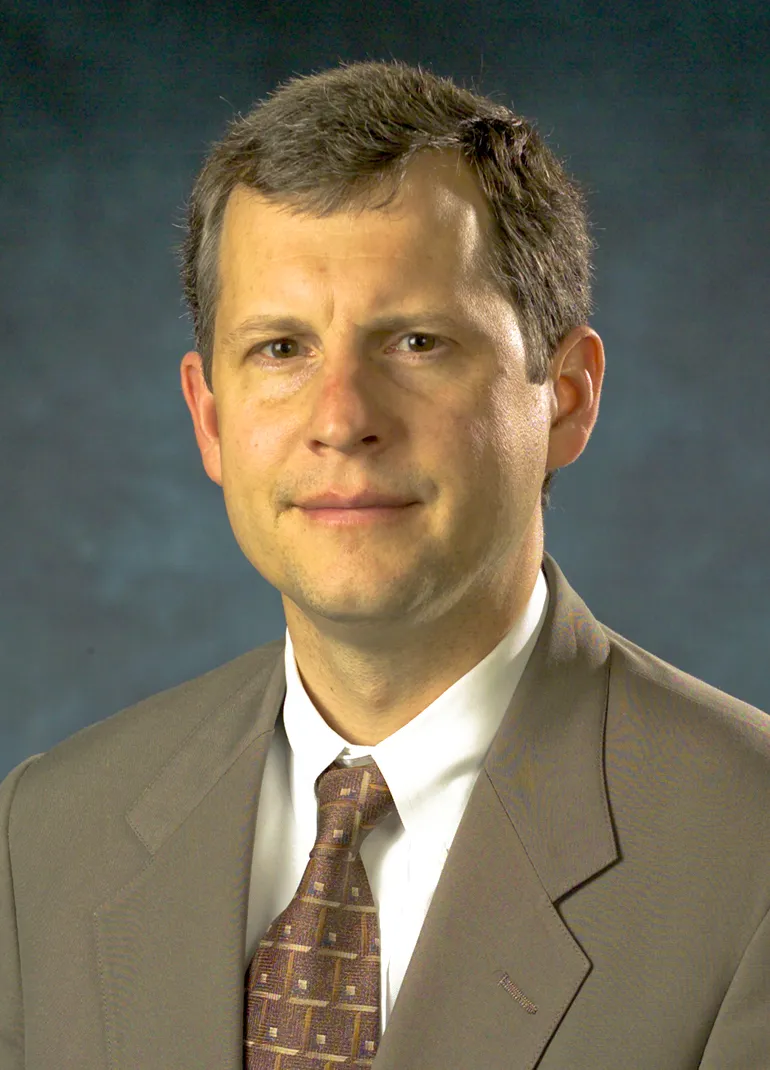Jim Squires, '92: Weighty Legal Problems Handled the Law School Way

After he graduated from the Law School in 1992, Jim Squires went to work in the legal department of Norfolk Southern Railway, which operates 21,500 route miles in 22 eastern states. He’s still there today, as the company’s CFO and its executive vice president for finance.
“One reason I wanted to take an inside counsel job was so that I could really get to know one company and one industry very well,” Squires says. That happened for him, as he became directly engaged in events that determined the future of Norfolk Southern and helped shape the railroad industry as a whole. In 1996, a competitor of Norfolk Southern, CSX, made a bid for Conrail, the federally created rail system. If CSX were to obtain Conrail, it would deal a big, possibly fatal, blow to Norfolk Southern’s competitive position. A lengthy bidding war followed, ending two years later with Norfolk Southern and CSX agreeing to divide Conrail between themselves. Squires was deeply involved in all aspects of this transaction, as well as related ones such as shareholder lawsuits challenging Norfolk Southern’s tactics.
Then, in 2005, the derailment of a Norfolk Southern train in South Carolina resulted in a release of deadly chlorine gas. Nine persons died, a nearby town had to be evacuated, and considerable damage was done to crops and waterways. As the company’s senior vice president for legal matters, Squires worked on this matter nearly full-time for over a year.
“My training at the University of Chicago Law School helped me handle my regular duties successfully, and it was particularly important to me in the critical, make-or-break circumstances I was asked to deal with, where I frequently turned to things I learned at the Law School and people I knew there,” Squires says. “Professors Baird and Picker were big factors in my growth as a law student, and their ideas and ways of looking at things have remained central in my professional life.”
In 2006, he was moved onto his company’s financial leadership track, becoming senior vice president for financial planning before ascending to his current position. Norfolk Southern’s tax, accounting, and financial planning functions report to him, and he is the company’s primary liaison to financial markets.
Squires, who spent four years in the army after graduating from college, primarily as a Japanese-language expert in a psychological operations unit, was married during his time at the Law School. He and his wife, Karen, were resident heads in the Burton-Judson Courts during his third year. They have two daughters: Eleanor, who is in her third year at Old Dominion University, and Maggie, a senior in high school.
Squires also received a Tony Patiño Fellowship—a three-year merit award based on character and leadership traits—to attend the Law School, for which he expresses gratitude: “The money from this fellowship was very important to me, and just as important was the confidence in me that the fellowship conveyed.” He has given generously to the Law School, both in service—he is, for example, a current member of the Visiting Committee—and as a substantial annual fund donor. “I benefited tremendously from my time at the Law School,” he says. “In many ways, it is my intellectual home, so it feels natural for me to remain involved and give back in whatever ways I can.”


